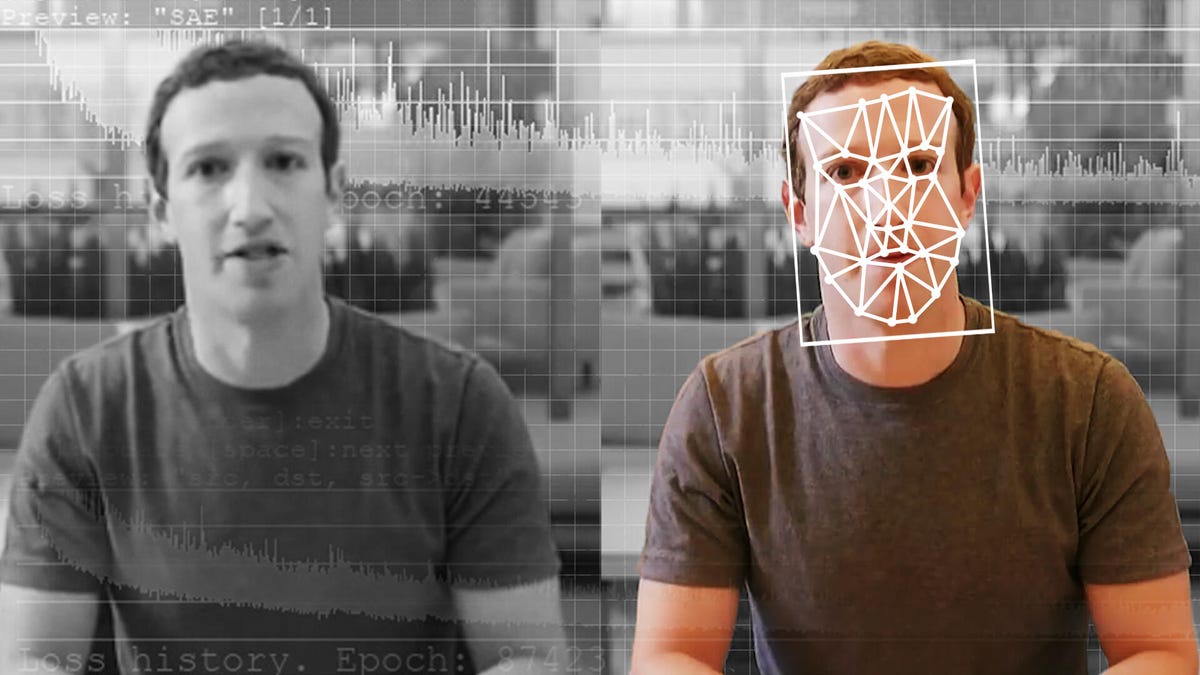Google parent Alphabet takes on deepfakes with bogus-photo detector
The tool is meant to help journalists check for photo manipulation. That could be handy during this politically tense election season.

Facebook CEO Mark Zuckerberg is among those who've been given the deepfake treatment.
Google parent company Alphabet has created a free tool called Assembler to help determine if a photo is real or doctored, an effort designed to help journalists and fact-checkers fight deepfakes and other attempts to manipulate the truth. The tool combines a collection of tests to spot evidence of effects like pasting part of one photo into another, editing brightness or deleting regions from the background.
The project is from Alphabet's Jigsaw, a team of engineers, designers, researchers, policy experts and others Alphabet has gathered to fight digital aspects of problems like disinformation, harassment, censorship, violent extremism and election manipulation.
Online manipulations, including photos and videos called deepfakes created with deep-learning artificial intelligence technology, are a growing concern as new tools make such fabrications easier. It's a particularly sensitive issue in the US in today's politically charged environment, with foreign interference in elections a real problem and social media a powerful if mistrusted information source. Disinformation attacks are an issue around the world, though.
Jigsaw has tackled other issues, including clarifying tech jargon, fighting government censorship, protecting free speech and curtailing election fraud. Google, though, is involved. Search results are a primary way that people find information, and they can be manipulated. And Google-owned YouTube is working to banish doctored video amid concern among politicians.
News and fact-checking organizations testing Alphabet's Assembler tool include Agence France-Presse, Animal Politico, Code for Africa, Les Décodeurs du Monde and Rappler, Jigsaw Chief Executive Jared Cohen said in a blog post Tuesday.
Alphabet's Jigsaw team has a tool called Assembler that spotlights areas of a photo that've been manipulated.
"Fact-checkers and journalists need a way to stay ahead of the latest manipulation techniques and make it easier to check the authenticity of images and other assets," Cohen said.
But ordinary folks won't be able to upload that suspicious photo shared on Facebook to check its veracity.
"It's an arms race between those coming up with the tools to counter the problem and bad actors, and we want to be sure our work tips the scales in favor of the good guys," said Jigsaw Product Manager Santiago Andrigo in a statement. "Considering this, we are being very careful and intentional about who gets access to Assembler, and very diligent in monitoring for potential signs of abuse."
Originally published Feb. 4, 12:16 p.m. PT.
Update, 1:28 p.m.: Adds comment from Alphabet.

